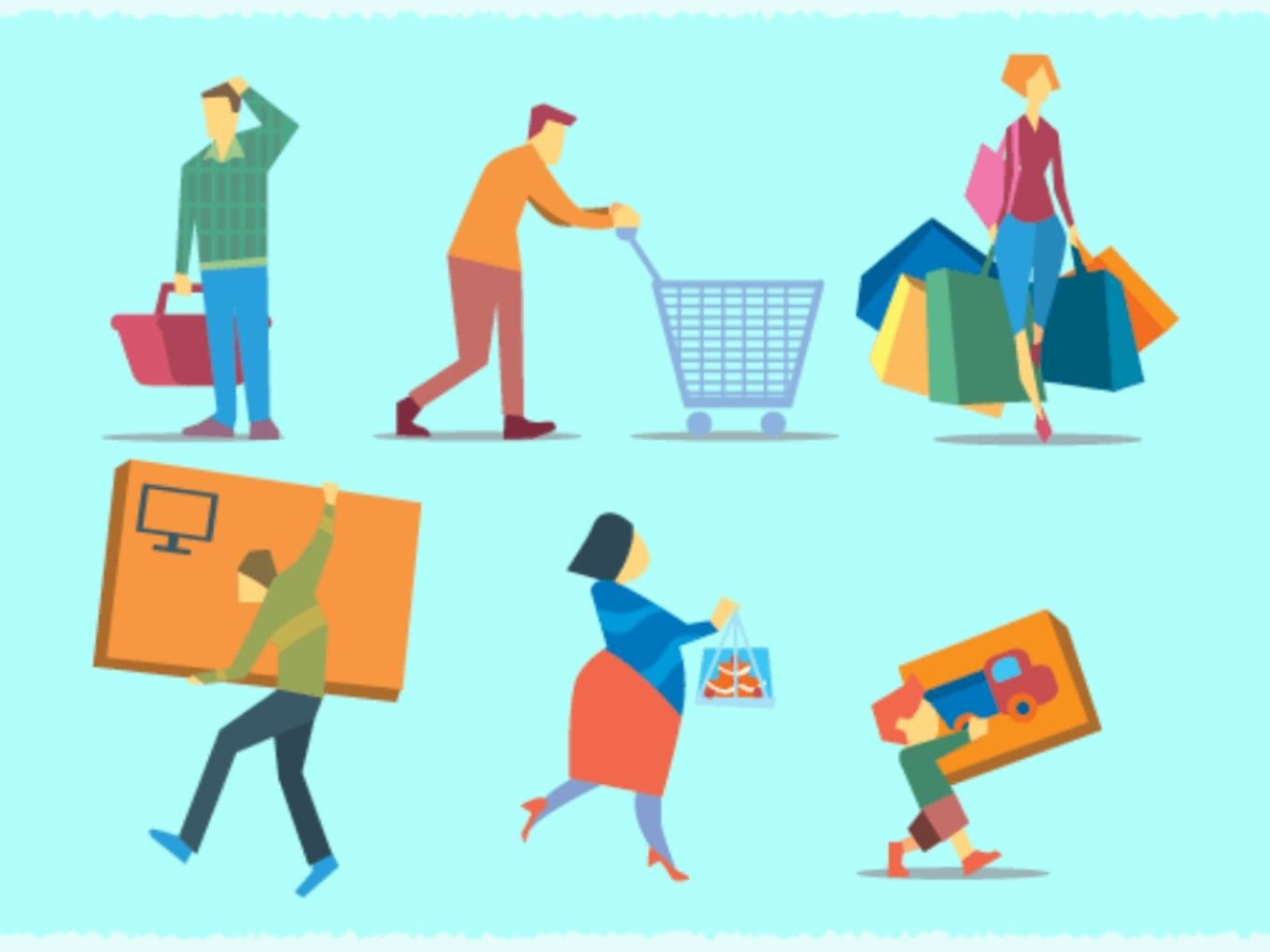
SUMMARY
There is a significant change in consumers attitudes and shopping behaviour, most of them are expected to remain post-pandemic.
The lockdown has forced consumers to question their shopping habits including cost consciousness, preference for local products and the dramatic shift towards e-commerce.
Consumer preferences will realign sharply — away from luxury brands and travel towards health and hygiene and personal care.
The global economy is reeling under the impact of Covid-19. Experts are now predicting that many major economies are likely to head towards a recession-like situation, with federal spending rising up to meet the gaps in the economy.
Having said that, the Coronavirus crisis is also likely to see some big shifts in consumption patterns and consumer behaviour, especially in ecommerce. Here are some of the biggest trends that are likely to play out in the aftermath of the crisis:
A Change In The Buying Behavior That Will Last Forever
While the Indian consumer was already evolving at a great speed pre-pandemic, the Coronavirus crisis has changed the lives of consumers in a way we could never imagine. Let’s start by understanding how consumers are feeling. Right now, more than anything else, they are worried about the health of their families. Then, with pay cuts and uncertainty about jobs, they are worried about whether they can buy for their basic needs. Finally, they are all experiencing the loss of freedom that they had once taken for granted.
But are these common concerns big enough to bring about a noticeable change in consumer behaviour? The answer is yes. While these concerns have led some consumers to make deep cuts in their spending, the others are continuing to spend normally but are making major changes in the way they live.
The Start Of A New Digital Era
The coronavirus outbreak has not only changed the way consumers view personal hygiene and health but also the way they interact with friends, families and communities. Isolation has led to people to embrace technology more than ever. The way people are spending their leisure time is also becoming more dependent on technology. This adaption of technology is anticipated to continue post-Covid as well.
So, what changes can we expect to see in consumer shopping behaviour? The shutdown of physical stores has led consumers to rethink their shopping habits. People who were previously reluctant to shop online are now left with little choice. And once they get used to the convenience of online shopping, consumers will be slow to come back to brick-and-mortar retailers.
Let’s take a simple analogy. The 2016 demonetization drove people towards digital transactions in a big way. Not only did incumbents like PayTM benefit, but the ecosystem soon evolved (in the form of UPI and other entrants like Google Pay) to make digital payments thrive even further. While some of those gains did go away once the cash was back in ample circulation, a big shift in consumer behaviour had already taken place.
It’s very likely that we will see the same kind of shift with online shopping post-COVID-19. In economies like India, online shopping still accounts for a paltry 1.6% of total retail sales which means that the sector is far from saturation. As the Coronavirus forces people to stay indoors for long periods of time, this percentage is likely to go up significantly, especially as behaviour patterns start shifting in Tier 2 and 3 towns. Both China and South East Asia are seeing this shift and India is likely to follow suit.
Demand For Hand Care And Hygiene Products Will Witness Exemplary Growth
The improved standard of living along with an increase in public awareness towards the importance of hygiene are some of the factors that have fueled the growth of the hygiene product industry in recent times. But with the outbreak of Covid-19, the demand for hygiene products has seen as exemplary growth rate. Government and health organizations across the country are focused on increasing awareness regarding maintenance of hygiene with the use of sanitizers and soaps.
With increasing concerns for health and safety, hygiene as a category will see a big boost — not just in the immediate term but even in the middle to long-term as hygiene practices shift permanently. Products like sanitizers and handwashes will now see massive penetration even in Tier 2 and 3 towns and rural areas. Companies that adapt quickly to these shifts will win big. At Mamaearth, for instance, we’ve opened up the Hygiene category to keep pace with current demand.
A Shift In Preference For Purpose-Driven Brands
Consumers are very closely monitoring the way brands are responding to the Covid-19 crisis. The future consumer buying behaviour will be driven by how brands are shifting their business priorities and using their resources to respond and adapt to the current challenges.
In the short and medium-term, the buying behaviour is going to shift towards purpose-driven brands. Brands that have kept trust and credibility during the Coronavirus crisis are likely to benefit in a big way. Post the crisis, people might become less prone to experimenting with “flashy” or “edgy” brands, as well as with brands that are generic and touted as “value-for-money”. The focus will shift sharply towards brands that have been able to win consumer trust in this time of crisis.
The post-Covid era could also see the rise of conscious consumption and brands that products that incorporate sustainability in their fabric will become market leaders. Being toxin and chemical-free, plastic-positive, cruelty-free are all factors that will start shaping consumer choices. Along with this, the demand for locally made products will see a sharp rise.
The Bottom Line
As and when we emerge into a new post-pandemic reality, the demand in the eCommerce industry looks fairly robust. There will be some realignment in category and brand preferences but on the whole, the sector is poised for growth. Having said that, the companies that are able to understand the most significant changes in consumer behaviour and position themselves to adapt accordingly will emerge as true winners.


























